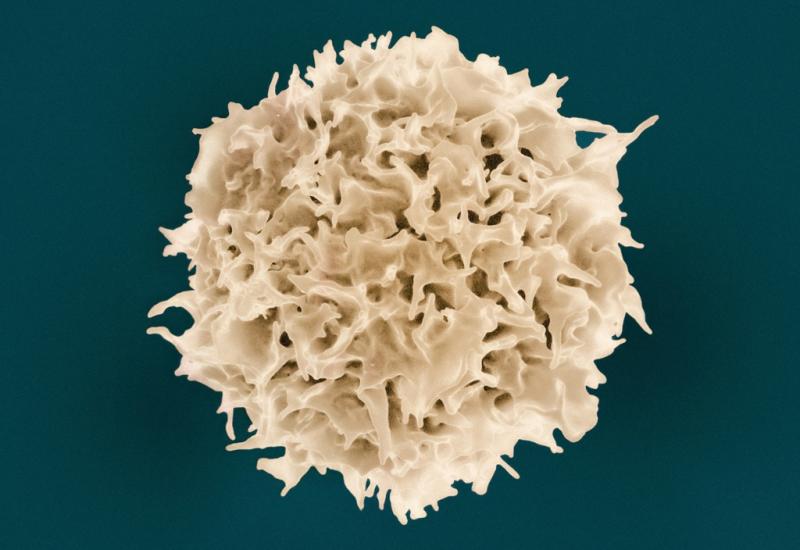
Merck speeds its KRAS into the colorectal front line
The move follows promising but early data presented at ASCO.
The move follows promising but early data presented at ASCO.

Merck & Co, a relative latecomer in KRAS G12C, is working to make up lost ground with its contender MK-1084 – first in non-small lung cancer, and now in colorectal cancer. The group will soon begin a phase 3 colorectal trial, Kandlelit-012, a new clinicaltrials.gov listing reveals.
It’s notable that the company is going for first-line KRAS G12C-mutant disease, bypassing the second-line setting in which Amgen’s Lumakras and Bristol Myers Squibb’s Krazati are approved. Merck’s move follows promising early colorectal data from the Kandlelit-001 study, presented at the recent ASCO meeting. However, the first-line results come from a subset of just 12 patients receiving MK-1084 alongside Erbitux and chemo.
Among these patients, the confirmed overall response rate was 58%; meanwhile, with the same triplet across first as well as second-line patients, ORR was 38%.
The study also tested MK-1084 monotherapy, and an MK-1084/Erbitux doublet, in previously treated colorectal cancer. These produced confirmed ORRs of 38% and 46% respectively – still respectable versus the 26% and 34% seen with Lumakras plus Vectibix, and Krazati plus Erbitux respectively, in their approved second-line uses (Krazati only has an accelerated nod here).
First-line focus
However, Merck has clearly decided to focus on the first line – similarly to its approach in NSCLC, where it appears to have bypassed the second-line setting.
One thing to watch out for in Kandlelit-012 will be toxicity; in the MK-1084/Erbitux/chemo cohort of Kandlelit-001, 10% of patients had dose-limiting toxicities (grade 3 febrile neutropenia and grade 2 peripheral sensory neuropathy). There were no treatment-related deaths, but 15% of patients had grade 4 treatment-related adverse events, and 12% discontinued therapy.
Still, Lumakras and Krazati aren’t without their side effects, with warnings of hepatotoxicity and interstitial lung disease, for example.
In Kandlelit-012, around 462 patients will receive either MK-1084 plus Erbitux plus mFolfox6 chemo, or mFolfox6 chemo with or without Avastin (at the investigator’s discretion). The primary efficacy endpoint will be progression-free survival.
Here Merck is behind Amgen, which last year began an analogous first-line trial, Codebreak-301, testing Lumakras plus Vectibix plus chemo.
As for the rest of the competition, Bristol Myers Squibb doesn’t appear to have any ongoing trials of Krazati dedicated to first-line colorectal, according to OncologyPipeline. The same is true of Lilly, which also presented data at ASCO with olomorasib alongside Erbitux in relapsed colorectal cancer, from the phase 1/2 LOXO-RAS-20001 trial – where it produced an ORR of 43% across two olomorasib doses.
Meanwhile, Roche’s divarasib has looked like the KRAS G12C inhibitor to beat in colorectal cancer, with an ORR of 62% in relapsed disease. However, that group appears to be taking a more cautious approach, with its phase 1 Intrinsic trial testing various projects; Roche highlighted divarasib plus Avastin plus chemo cohorts in first-line colorectal in its first-quarter earnings presentation.
KRAS G12C inhibitors in first-line colorectal cancer
| Product/project | Company | Status | Note |
|---|---|---|---|
| Lumakras | Amgen | Ph3 Codebreak-301 (Vectibix + chemo combo) completes Jan 2028 | Approved Jan 2025 for 2nd-line use (Vectibix combo) |
| MK-1084 | Merck & Co | Ph3 Kandlelit-012 (Erbitux + chemo combo) to begin Jul 2025 | Ph1 Kandlelit-001 at ASCO 2025: ORR 58% (7/12) in 1st-line pts receiving triplet |
| Fulzerasib | GenFleet | China ph2 includes 1st-line cohort (Erbitux + chemo combo), completes Nov 2027 | – |
| Divarasib | Roche | Ph1 Intrinsic includes various divarasib cohorts, completes Aug 2027 | 62% ORR in late-line CRC in ph1 |
Source: OncologyPipeline & clinicaltrials.gov.
3191













